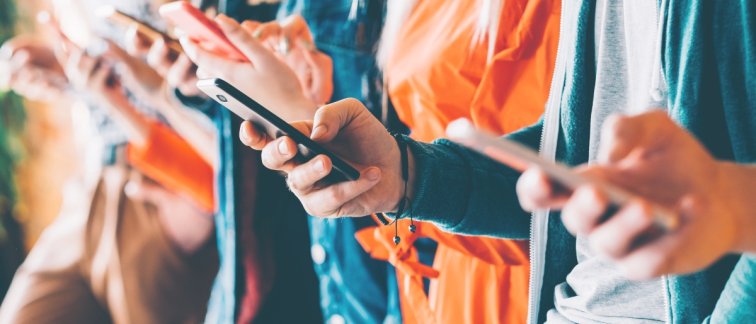Social media have transformed the lives of children and adolescents. As a society, we are grappling with this development, with one question at the center of our minds: how does social media affect adolescent mental health? In search of an answer to this question, our dominant reflex is to generalize and pathologize, in other words, try to draw one simple (negative) conclusion about social media. A conclusion that applies to all young people, sometimes prompting proposals for draconian measures in response.
American social psychologist Jonathan Haidt sees social media as the main cause of deteriorating mental health among young people. His thesis: social media is the cause of ‘massive mental damage’. Haidt's conclusion is getting a lot of support. For example, psychiatrist Esther van Fenema calls social media “cocaine for the brain”. Movies on social media could lead to addiction, similar to drugs and porn.
It is appealing to point to a simple and intuitive cause for deteriorating mental health, with a ready-made solution that fits right into a TikTok video. But if it sounds plausible, is it true? The simple answer is no. Multiple studies to date show no convincing evidence that social media has strong and long-term negative effects on young people's mental well-being. This is also the conclusion of review studies of the scientific literature.
Much of the evidence presented by Haidt is correlational rather than causal. While there is a relationship between social media use and mental problems, this correlation may be caused in part - and some studies show this - by the fact that young people with mental problems may be more likely to resort to social media. Of course, social media can sometimes have negative effects for a small proportion of young people and adults, but even then other factors play a role in addition to that. Conversely, social media can actually be a blessing for some young people. They provide platforms for developing their identity and opportunities to connect with other members of the lhbti community, for example - things that are less easy offline. So if we follow our gut and try to ban social media from young people's lives, it may just be a bad idea. In fact, it may well be that for some young people, social media use actually leads to a reduction in mental health symptoms.
These superficial analyses which result in describing social media as the main cause of deteriorating risks might have risks, as we possibly neglect other known causes, such as achievement pressure, poverty or childhood trauma. However, the fact that there is little convincing evidence of the harmful impact of social media on young people does not mean that it is desirable for them to plunge into those platforms without restraint. Unbridled and unlimited use of cell phones - and associated social media - is obviously not a good plan. But this does not require panic. Even relatively light interventions can go a long way.
The main issue is the ground rules for using social media. The website of the American Professional Association of Psychologists APA already lists some advice: don't give young people a smartphone at too young an age (e.g., not before age 12), keep the smartphone out of the bedroom and out of the classroom, and also regulate the (sometimes violent and harmful) content young people see on social media.
Our need to find a bogeyman hiding behind mental complaints finds eager acceptance among self-appointed social media experts. They preach hell and damnation, generating a lot of attention for themselves above all else. This message is like a Snapchat message: short and sweet, but with little long-term impact. To understand the increasing spiritual complaints among young people, we must put aside the penchant for a quick fix. We need to look at the problem from many angles, certainly not forgetting the role of social media. Only we should not hoist them onto the stage as the scapegoat. Policies should not be based on alarmists who unilaterally and unsubtly condemn social media.
Course: Leeuwarder Courant

